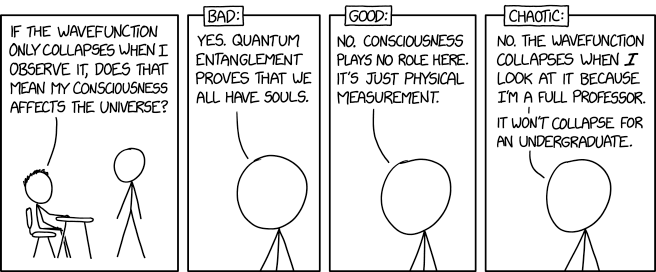This reminds me of this old hacker koan:
A novice was trying to fix a broken Lisp machine by turning the power off and on. [Tom] Knight, seeing what the student was doing, spoke sternly: "You cannot fix a machine by just power-cycling it with no understanding of what is going wrong."
Knight turned the machine off and on.
The machine worked.
